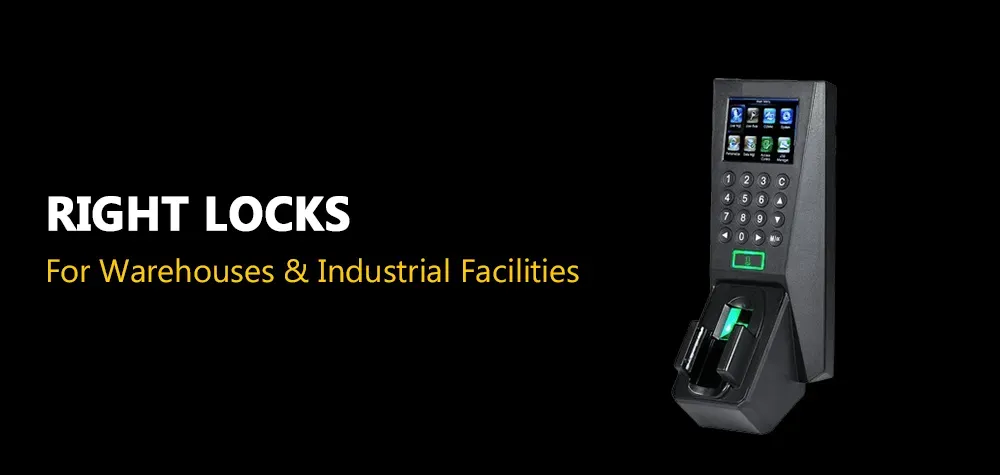Why Your Car Key Isn't Working
Why Your Car Key Isn't Working
At the heart of every journey lies the humble yet indispensable car key – a small device that grants us access to our vehicles and ignites the engines of our adventures. Yet, despite its simplicity, there are moments when this essential tool falters, leaving us stranded and frustrated. Welcome to our blog post, where we delve deep into the mysteries of why your car key isn't working. As experts in the field, we understand the frustration and inconvenience that accompanies a malfunctioning car key. That's why we're here to unravel the complexities and provide you with the insights and solutions you need to overcome this common obstacle.
From mechanical glitches to electronic hiccups, there's a myriad of reasons why your car key may fail to function as expected. But fear not – armed with knowledge and understanding, you can navigate through these challenges with confidence. Join us as we explore the common causes behind car key malfunctions, offering practical troubleshooting tips and preventive measures to keep your key in top-notch condition.
So, whether you're grappling with a stubborn ignition or scratching your head over a dead fob, know that you're not alone. Together, let's embark on a journey to uncover the secrets of why your car key isn't working and reclaim the freedom of the open road.
Types of Car Key Problems
Car keys are essential for accessing and operating your vehicle, but they can encounter various issues that hinder their functionality. Understanding the types of car key problems is crucial for troubleshooting and finding solutions. Below are some common types of car key problems:
1. Mechanical Problems:
- Mechanical issues refer to physical damage or wear and tear on the key itself. This can include bent or broken key blades, worn-out key teeth, or damaged key shells.
- Symptoms of mechanical problems may include difficulty inserting the key into the ignition, key sticking or jamming in the lock, or thekey not turning smoothly.
2. Electronic Problems:
- Electronic key fobs or remote keyless entry (RKE) devices can experience electronic problems, such as battery failure, circuit board damage, or malfunctioning buttons.
- Symptoms of electronic problems may include the key fob not unlocking or locking the doors, the remote start function not working, or the key fob not being recognized by the vehicle's immobilizer system.
Read more aboutCan a Car with Keyless Ignition Be Stolen?
3. Transponder Problems:
- Transponder keys are equipped with a chip that communicates with the vehicle's immobilizer system to allow the engine to start. Transponder problems can occur if the chip is damaged, malfunctioning, or not programmed correctly.
- Symptoms of transponder problems may include the engine cranking but not starting, the vehicle's security light flashing, or the immobilizer system preventing the engine from starting.
4. Programming Problems:
- Many modern car keys, especially electronic and transponder keys, require programming to sync with the vehicle's onboard computer. Programming problems can occur if the key is not programmed correctly or if there are issues with the vehicle's programming system.
- Symptoms of programming problems may include the key fob not working after battery replacement, the transponder key not being recognized by the vehicle's immobilizer system, or the remote functions not responding.
Common Causes of Car Key Malfunctions
Car keys are reliable tools for accessing and operating vehicles, but they can encounter malfunctions due to various reasons. Understanding the common causes behind car key issues is essential for troubleshooting and resolving problems effectively. Here are some prevalent reasons why car keys may malfunction:
1. Wear and Tear:
- Over time, car keys can experience wear and tear from regular use, leading to damage to the key blade, key teeth, or key shell. Continuous friction and contact with surfaces can cause key components to degrade, affecting the key's functionality.
2. Physical Damage:
- Physical damage to the key, such as bending, breaking, or cracking, can occur due to accidents, mishandling, or exposure to harsh conditions. Damage to the key blade, key head, or electronic components can impair the key's ability to operate the vehicle.
3. Battery Issues:
- Electronic car keys, including key fobs and remote keyless entry (RKE) devices, rely on batteries to power their functions. If the battery is low, dead, or incorrectly installed, the key may fail to send signals to the vehicle's immobilizer system or remote control functions.
4. Electronic Malfunctions:
- Electronic car keys can experience malfunctions in their internal circuitry, such as damaged wiring, loose connections, or faulty components. Electronic issues may prevent the key from transmitting signals effectively or responding to user input.
5. Transponder Problems:
- Transponder keys contain a chip that communicates with the vehicle's immobilizer system to authorize engine ignition. Transponder problems can arise if the chip is damaged, not programmed correctly, or incompatible with the vehicle's immobilizer system.
6. Programming Errors:
- Many modern car keys require programming to synchronize with the vehicle's onboard computer. Programming errors, such as incorrect programming procedures or failed programming attempts, can prevent the key from functioning properly or being recognized by the vehicle's security system.
Identifying the root cause of a car key malfunction is essential for implementing the appropriate solution. Whether it's addressing wear and tear, repairing physical damage, replacing batteries, resolving electronic issues, reprogramming the key, or troubleshooting transponder problems, understanding the underlying cause is the first step towards restoring the key's functionality and ensuring reliable vehicle access and operation.
Troubleshooting Car Key Problems
Car key problems can range from minor inconveniences to significant obstacles in accessing and operating your vehicle. Fortunately, many common car key issues can be resolved through troubleshooting steps and simple solutions. Below is a step-by-step guide to troubleshooting common car key problems, along with tips for identifying and resolving specific issues based on symptoms:
1. Check for Physical Damage:
- Inspect the car key for any visible signs of physical damage, such as bending, breaking, or wear and tear. Pay close attention to the key blade, key teeth, and key shell.
- If physical damage is detected, consider replacing the key or repairing the damaged components to restore functionality.
2. Replace Batteries:
- If you have an electronic car key, such as a key fob or remote keyless entry (RKE) device, check the battery level. Replace the battery with a new one if it is low or dead.
- Ensure that the battery is installed correctly, with the positive and negative terminals aligned according to the manufacturer's instructions.
3. Reprogram Electronic Keys:
- If your electronic car key is not working despite having a new battery, it may need to be reprogrammed. Consult your vehicle's owner's manual or contact a professional locksmith for guidance on how to reprogram the key.
- Follow the programming instructions carefully, ensuring that the key is synchronized with the vehicle's onboard computer.
Tips for Identifying and Resolving Specific Problems Based on Symptoms:
- Key Fob Not Working: If your key fob is not working, try pressing the buttons multiple times to ensure proper contact. If the key fob still does not respond, replace the battery and reprogram the key if necessary.
- Key Stuck in Ignition: If yourkey is stuck in the ignition, try jiggling the steering wheel while gently turning the key. If this does not work, check for any debris or foreign objects obstructing the keyway. If the key remains stuck, contact a professional locksmith for assistance.
- Car Not Starting: If your car does not start despite inserting the key and turning the ignition, check the transponder chip in the key. Ensure that the chip is not damaged or missing, as this can prevent the engine from starting. If the chip is intact, consider reprogramming the key or contacting a professional locksmith for further diagnosis.
When to Seek Professional Help - Brothers Locksmith
While DIY troubleshooting can resolve many car key problems, there are situations where professional assistance may be necessary. Here's when to consider reaching out to Brothers Locksmith for expert help:
- Complex Issues: If you encounter complex car key issues beyond your expertise, such as intricate electronic malfunctions or transponder programming errors, it's best to leave the troubleshooting to professionals. Brothers Locksmith has the knowledge and specialized tools to diagnose and resolve complicated problems efficiently.
- Key Extraction: If your car key breaks off in the ignition or door lock, attempting to extract it yourself can cause further damage. Brothers Locksmith offers safe and reliable key extraction services to retrieve broken keys without harming your vehicle's locks.
- Lock Rekeying or Replacement: When yourcar key is lost or stolen, rekeying or replacing the locks may be necessary to maintain security. Brothers Locksmith can rekey existing locks or install new ones, ensuring that only authorized keys can access your vehicle.
Preventive Measures for Maintaining Car Keys
Preventing car key issues before they arise is essential for smooth vehicle operation. Here are some preventive measures to maintain your car keys:
- Regular Maintenance: Schedule regular inspections with Brothers Locksmith to check the condition of your car keys and locks. Promptly address any signs of wear, damage, or malfunction to prevent larger issues down the road.
- Careful Handling: Handle your car keys with care to avoid damage. Avoid dropping them, exposing them to extreme temperatures, or subjecting them to excessive force. Brothers Locksmith can provide tips on proper key care and storage.
- Key Protection: Invest in protective measures such as key covers or key cases to shield your car keys from scratches, impacts, and moisture. Brothers Locksmith can recommend durable and practical solutions to keep your keys safe and secure.
Conclusion
In conclusion, understanding when to seek professional help and implementing preventive measures are crucial for maintaining the functionality and longevity of your car keys. Whether you encounter complex issues or simply want to safeguard your keys against damage, Brothers Locksmith is here to provide expert assistance and guidance. With our expertise and commitment to customer satisfaction, you can trust Brothers Locksmith to keep your car keys and locks in optimal condition for years to come.
Call Us Any Time!






BROTHERS LOCKSMITH
All Rights Reserved | brothers-locksmith.com
Privacy Policy



